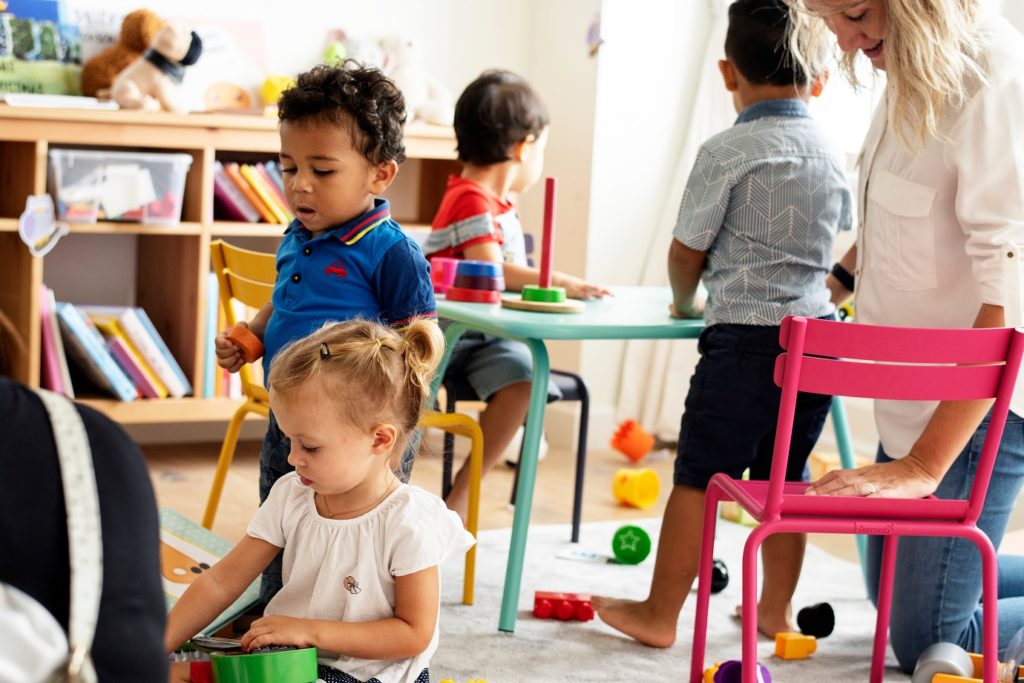In late December 2009 I was holding a baby and sobbing into the phone. At the time my profession didn’t offer easy maternity leave pathways for medical specialists in training and many colleagues had been threatened with dismissal from their own training programs. I’d returned to full time work in August when my first child was five weeks old.
My husband was in his first year of a PhD. We’d cobbled together care from family for the first six months and we’d soon be stuck without that support. Despite being on waiting lists for childcare since early pregnancy, we had no one to care for the baby.
‘One of us will have to stop working,’ I wailed. My husband was willing but his confirmation – the first major hurdle in a PhD – was coming up. I was afraid that if I withdrew from my next allocated job at such late notice, this would end my own training. A private nanny wasn’t in the budget of a junior doctor and a PhD student.
The woman on the other end of the phone was patient and kind. This was a story she’d heard again, and again and again. The admissions coordinator for our local council childcare centres, she tapped away on her computer as she listened to my story.
‘You sound desperate,’ she admitted. Then, after a long pause, ‘I can offer you a full-time spot.’
We hadn’t even seen the centre, but I accepted it over the phone.
Last week, we dropped our youngest child off at the same childcare centre. The centre chef—who has worked there for over two decades—brought my husband and I socially distanced pancakes and syrup at the door and badgered us one last time to ‘have just one more.’ She’s cooked my three boys more meals than I have. The centre director, whose daughter started childcare with my eldest son when both were six months old, stopped for a chat. We’ll keep in touch long term – my husband used to pick up her daughter and our son early and take them to the park across the road until she finished work. We’ve known her as a fellow parent too.
Drop off over the last two years has mostly been done at the door, so newer parents watched bemused as my husband and I handed out presents and ate pancakes with moist eyes. ‘We’ve been here twelve years and this is our last day,’ I explained.
In those years, we’ve watch childcare policy change, sometimes dramatically. We’ve seen fees rise and rebates wound back. We’ve paid hundreds of thousands of dollars for education and care for our three children, a privilege by any reckoning.
But our whole family has benefited from having our children not only in childcare, but in a council-run not-for-profit centre. Supported by local government, staff are rostered in above award ratios and staff turnover is incredibly low. Some – like the chef – have cared for and educated all my children. The kindergarten program is high quality, the educational resources excellent. My youngest attended primary school transition with all his little mates.
Through lockdown after lockdown, the centre has provided affordable care without compromising staff pay or wellbeing. While other parents withdrew their children from privatised centres who couldn’t or wouldn’t offer fee relief after the initial financial support for childcare centres was withdrawn, ours was able to keep doing so.
Over the last twelve years, our children have thrived and both our careers have gone from strength to strength. I’ve never stopped feeling lucky that on that day in late December 2009, we were offered a place in a local government supported childcare centre.
What frustrates me, though, is that this could be repeated at a national level. In the same way that primary and secondary school is funded and provided as an essential service, early childhood education and care could be too. Parents in Australia currently pay among the highest out-of-pocket fees for early childhood education and care in the world – with the consequence that access to care is reduced, children miss out on early childhood education especially at the 3 and 4 year old level, and there are financial impacts on families (especially women) by limiting the number of hours of paid work.
Even if improved care and educational opportunities for children wasn’t a valuable objective in its own right, the economic benefits of free early childhood education and care are clear, especially by improving rates of female workforce participation.
My own journey in the trenches of early childhood ended a week ago – despite the chef’s suggestion, we won’t be having ‘just’ one more. But I’ll never stop being grateful that our local government chose to invest in the wellbeing of children, and that we were one of those lucky enough to access those services, nor stop advocating for universal access for all children. Even though we no longer need it ourselves, it’s a key policy I’ll be looking for at the next federal election.


